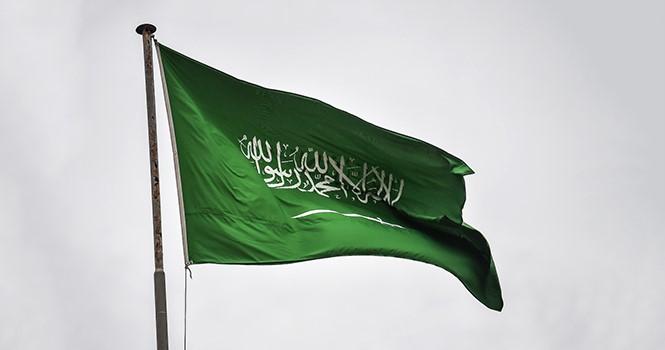
Saudi Arabia has strong financial position: IMF
Saudi Arabia’s growth outlook remains positive and its financial position is strong, the International Monetary Fund has said in its latest assessment report today, Sept. 6 upon concluding the 2023 Article IV consultation [1] with Saudi Arabia. The fund praised the progress implemented by the Kingdom in its reform agenda under the Saudi Vision 2030.
The IMF also lauded the accelerated digital transformation in the Kingdom. It welcomed the marked improvement in female labor force participation and improvements in the regulatory and business environment, which have contributed to higher private sector investment, and encouraged building on this positive progress, with the non-oil growth momentum continuing in 2023.
Saudi Arabia was the fastest-growing G20 economy in 2022. Overall growth reached 8.7%, reflecting both strong oil production and a 4.8% non-oil gross domestic product (GDP) growth. Total unemployment dropped to a historical low at 4.8%, the IMF added. Further, female participation in the labor force reached 36% in 2022, exceeding the 30% target set under the authorities’ Vision 2030 reform agenda.
The Kingdom’s efforts to curb inflation were also lauded. Despite a booming economic activity, inflation remains low and appears to be easing. Average consumer price index (CPI) grew by 2.5% year-on-year (YoY) in 2022, in part contained by domestic subsidies/price cap and a strong US dollar. Despite an uptick in early 2023 to 3.4% YoY, headline inflation is back at 2.8% YoY in May 2023.
The continued reforms under the Saudi Vision 2030 agenda will drive the Kingdom’s economic diversification programs to reduce oil dependence, the IMF said, expecting the strong non-oil GDP momentum to continue and average 4.9% in 2023 driven by robust private consumption and non-oil private investment, including giga projects.
The reform efforts implemented as part of the fiscal sustainability programs were also lauded, including boosting non-oil revenues and rationalizing spending. The IMF added that debt is low and sustainable, with ample fiscal space available to address potential headwinds.
Moreover, the IMF Directors agreed that the exchange rate peg continues to serve the country well. The banking system remains on a strong footing. The aggregate capital adequacy ratio is strong, profitability—driven by net interest margins—is high and above pre-pandemic levels, and the NPL ratio is low and declining.
While growth in mortgages has recently moderated, demand for project-related and consumer loans remains strong, helping offset the impact on profitability from rising funding costs linked to high.
Spillovers from the war in Ukraine and tighter global financial conditions have been limited, and the output gap is estimated to have been closed during 2022.
The IMF added that rating agencies have upgraded Saudi Arabia’s sovereign credit ratings in recognition of the sustained reform momentum, which will further facilitate Saudi Arabia's market access.
At close to 24% of GDP, public debt remains low and is assessed to be sustainable. The borrowing strategy is set to remain agile and innovative to lengthen debt maturities, further improve interest risk management, reduce refinancing costs, build a yield curve in domestic and international markets, develop green issuance, and further deepen the local debt market.
Further, the new Investment Law currently shared for public consultation will help create a level playing field for Saudi and non-Saudi investors by protecting investors’ rights and upholding transparency.
Directors welcomed the impressive non-oil revenue mobilization efforts already initiated, which have resulted in doubling non-oil revenues.
They agreed that the exchange rate peg continues to serve the country well. They noted that the monetary policy framework should continue to use market-based instruments to align the interbank rate with the policy rate, which should continue to move in line with the Federal Reserve’s policy rate.
Directors shared the view that the banking sector remains on a strong footing. They welcomed ongoing efforts to modernize the regulatory and supervisory frameworks and recommended maintaining vigilance and considering a gradual tightening in macroprudential guidelines/regulations and phasing out of fiscal incentives in the case of persistently elevated credit growth.
Source : Argaam

























